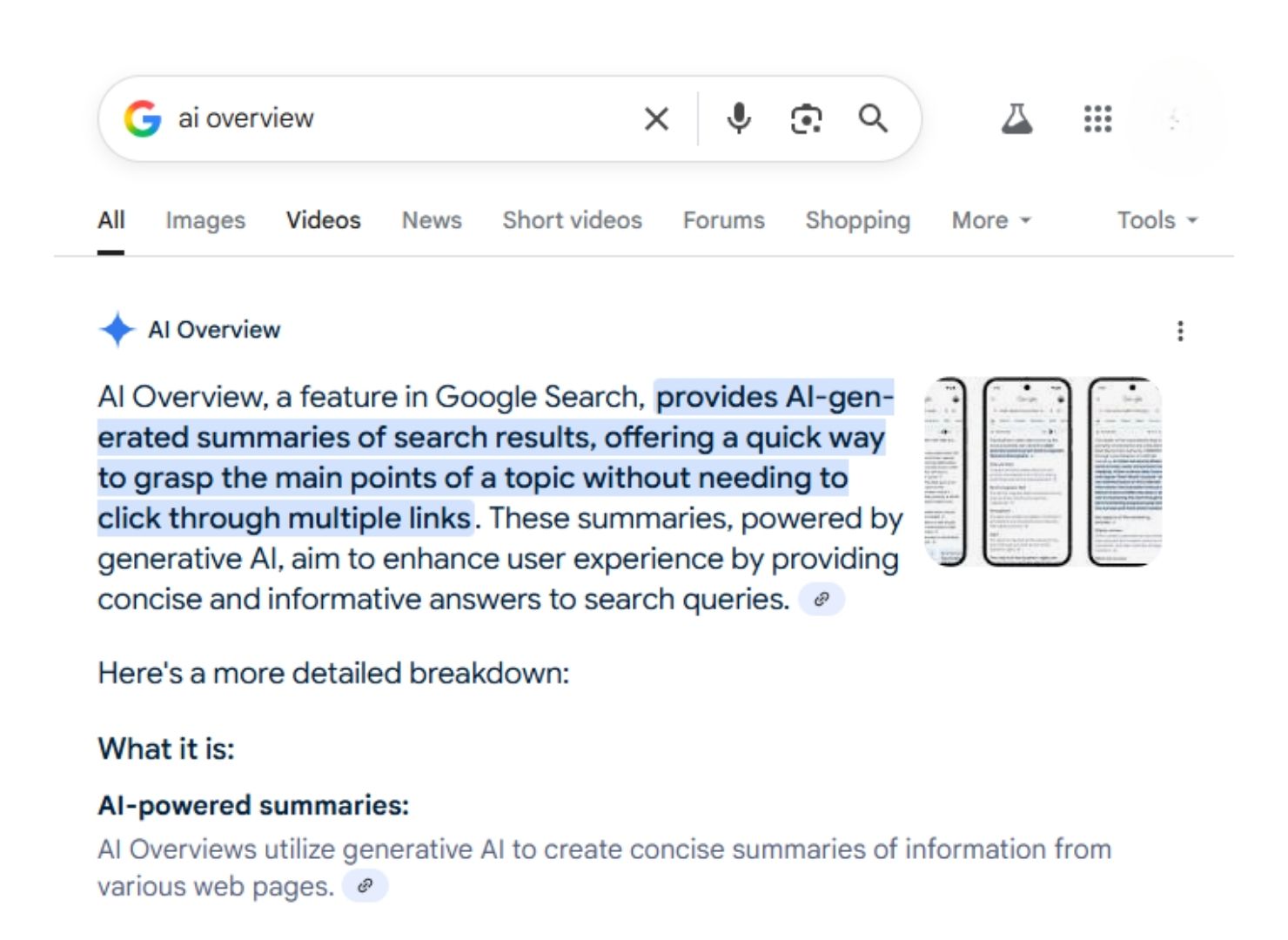
It's no secret that the digital world is always changing. For Singapore businesses, the key to success isn't just keeping up with search evolution.
Singaporean businesses are at a crossroads. With nearly everyone (96% of the population) now online and AI completely changing how we search for things, a lot of us maybe asking: are our old SEO strategies even working anymore?
It's a fair question. But if you look at the data from this year, the answer is a resounding yes. In fact, SEO isn't just surviving – it is more important than ever.
The artificial intelligence market will reach USD 826.70 billion by 2030, growing at 27.67 percent annually from 2025. This growth represents opportunity, not replacement. Singapore businesses that understand these changes position themselves for sustained growth.
The Current State of Search in 2025
Google processes 9.5 million searches every minute in 2025, totalling over 5 trillion searches annually worldwide. This translates to approximately 610 searches per person globally each year.
A big change is happening on that search results page, too. AI Overviews, those handy summaries that give you an answer right at the top, are now showing up in 13.14% of all searches as of March 2025. That's a huge jump from just 6.49% back in January. These summaries are fundamentally changing our search habits, as they provide the answers we need directly in the results, often eliminating the need to click through to a website.

In Singapore, our digital economy is always evolving, and businesses need a smarter strategy to keep up. The data is clear: local mobile searches convert at an impressive 18% within 24 hours, compared to just 7% for non-local ones. That's a huge difference, and it shows the immediate commercial value of getting your local SEO dialed in.
But that's not the only way things are changing. According to a Search Engine Land analysis, 27.2% of Google searches in March 2025 ended without a single click. This 'no-click' trend is all about things like AI Overviews, which give people the answers they need right on the search results page. Yet, despite this shift, Google is still the undeniable king of the search market. That's why your visibility on their platform has never been more important.
Understanding Modern SEO Requirements
This year, SEO has shifted from simple keyword matching to sophisticated, user-centric strategies that prioritize genuine value, visual engagement, and established trust to align with Google's advanced algorithms.
Content Depth over Keyword Density
About 15 percent of Google searches are completely new, indicating increasingly specific user queries. Modern SEO requires understanding intent rather than matching exact phrases.
For example, instead of targeting "Singapore restaurant", successful businesses create content addressing specific scenarios such as "best rooftop bars for corporate events Singapore", "Affordable HDB renovation contractors Jurong"
- Best rooftop bars for corporate events Singapore "
- "Affordable HDB renovation contractors Jurong"
- "dental clinics in Orchard Road"
- "Reliable aircon servicing Tampines"
Google's May 2025 guidance emphasises unique, valuable content that serves genuine user needs. The platform rewards depth, accuracy, and practical application over surface-level keyword placement.
Visual Search Revolution
Google Lens processes 12 billion searches monthly in 2025, fundamentally changing product discovery. Customers photograph items and search for local availability, pricing, and alternatives.
Singapore retailers must optimise for visual search through:
- High-resolution product photography from multiple angles
- Detailed image metadata and descriptions
- Consistent visual branding across platforms
- Mobile-optimised image loading speeds
The Trust Equation
Google's E-E-A-T framework continues to evolve through 2025, evaluating content based on Experience, Expertise, Authoritativeness, and Trustworthiness. The June 2025 core update particularly emphasised these factors for Singapore businesses in regulated industries.
Trust signals include:
- Verified business credentials and certifications
- Client testimonials with specific outcomes
- Case studies featuring local projects
- Author biographies demonstrating relevant experience
- Clear contact information and physical addresses
Practical Implementation Strategies
To succeed, businesses must focus on content architecture that caters to AI comprehension, adapt to the latest algorithm updates, leverage local market knowledge, and track performance metrics that matter for long-term growth.
Content Architecture for AI Comprehension
Google's May 2025 documentation states that AI Overview clicks generate higher engagement, with visitors spending more time on sites. Achieving these premium clicks requires strategic content structure.
Effective content architecture includes:
- Direct answers within opening paragraphs
- Logical heading hierarchies
- Bulleted lists for scannable information
- Tables comparing options or specifications
- FAQ sections addressing common concerns
2025 Algorithm Updates Impact
Google has released two confirmed core updates in 2025:
These updates emphasised content quality, user experience, and Core Web Vitals performance. Singapore businesses maintaining strong technical foundations weathered these changes successfully.
Local Market Advantages
Singapore businesses possess unique advantages in the AI era. Your understanding of local regulations, cultural nuances, and market conditions cannot be replicated by generic content generators.
Leverage local knowledge through:
- CPF calculator tools for mortgage brokers
- HDB-specific content for renovation contractors
- GST-inclusive pricing for service businesses
- Multilingual content for heartland businesses
- Local event tie-ins and seasonal promotions
Performance Metrics That Matter
The top organic search result captures 27.6 percent of clicks in 2025, while position 10 receives less than 3 percent. This dramatic difference underscores the importance of comprehensive SEO strategies.
In 2025, businesses receive 8 dollars for every dollar invested in search marketing. Organic SEO typically delivers superior long-term returns compared to paid advertising.
Building Sustainable SEO Practices
A successful SEO strategy is a long-term investment, built on a methodical cycle of foundational work, content expansion, and authority-building to secure a lasting competitive advantage.
|
Timeframe |
Focus Area | Key Activities |
Expected Outcomes |
| Monthly | Foundation & Monitoring | Rankings analysis, customer research, competitor review, technical audits, content gaps | Baseline established, opportunities identified, technical issues resolved |
| Quarterly | Content & Expansion | Comprehensive guides, local pages, case studies, link building, structured data | Increased content depth, improved local visibility, enhanced credibility |
| Annual | Authority & Leadership | Industry recognition, thought leadership, original research, educational resources | Market leader position, sustainable competitive advantage, brand authority |
Monthly Priorities: Foundation Building
- Search Performance Analysis. Begin each month by examining your current position in search results. Access Google Search Console to identify which pages rank well and which struggle. Look for patterns in successful content – perhaps your how-to guides perform better than product pages, or certain topics consistently attract traffic. Document ranking changes, particularly sudden drops that might indicate algorithm updates or technical issues.
- Customer Intelligence Gatherin. Document every question customers ask through emails, phone calls, and social media messages. These queries reveal exact language your audience uses when searching. For instance, if customers frequently ask about "BCA requirements for renovation", that specific phrasing should guide your content creation. Maintain a spreadsheet tracking question frequency, which helps prioritise content topics.
- Competitive Landscape Assessment. Analyse three to five direct competitors monthly. Examine their new content, ranking improvements, and backlink acquisitions. Use tools to identify keywords where competitors rank but you don't. Note their content formats – are they using videos, infographics, or interactive tools? Understanding competitive strategies helps identify market gaps and opportunities.
- Technical Performance Evaluation. Test your website's loading speed across desktop and mobile devices using Google's PageSpeed Insights. Check for broken links, missing meta descriptions, and duplicate content issues. Ensure your SSL certificate remains valid and your XML sitemap updates correctly. Technical health directly impacts rankings and user experience.
- Content Gap Identification. Compare your content library against customer needs and competitor offerings. Perhaps competitors thoroughly cover "Singapore grant applications" while your site lacks this information. Or customer questions reveal topics you haven't addressed. Create a priority list of missing content, focusing on topics with high search volume and business relevance.
Quarterly Objectives: Strategic Expansion
- Comprehensive Guide Development.. Each quarter, produce at least one authoritative guide addressing major customer challenges. For example, "Complete Guide to Singapore Business Registration" might cover entity types, requirements, costs, timelines, and common mistakes. These guides should be 2,000-5,000 words, incorporating original research, expert quotes, and practical examples. Structure content with clear sections, making information easily digestible and shareable.
- Location-Specific Optimisation. Create dedicated pages for each Singapore district or region you serve. A cleaning service might develop pages for "Office Cleaning Raffles Place", "Retail Cleaning Orchard Road", and "Industrial Cleaning Jurong". Each page should include area-specific information like parking availability, service radius, and local client testimonials. Include neighbourhood landmarks and transport options to demonstrate local knowledge.
- Case Study Documentation. Transform successful client projects into detailed case studies. Document initial challenges, your solution approach, implementation process, and measurable results. For instance, "How We Increased ABC Company's Online Leads by 300%" provides social proof while naturally incorporating relevant keywords. Include specific metrics, timelines, and client testimonials. Obtain written permission before publishing client information.
- Strategic Link Building. Develop relationships with industry publications, trade associations, and complementary businesses. Guest post opportunities, industry directory listings, and partnership announcements generate valuable backlinks. Focus on quality over quantity – one link from a respected industry site outweighs dozens from low-quality directories. Create linkable assets like industry reports or tools that naturally attract citations.
- Structured Data Implementation.Add schema markup to help search engines understand your content context. Implement organisation schema with business details, product schema for e-commerce items, FAQ schema for question pages, and review schema for testimonials. Local businesses should prioritise LocalBusiness schema including operating hours, accepted payments, and service areas. Proper implementation can trigger rich snippets, improving click-through rates.
Annual Strategic Goals: Market Leadership
- Industry Authority Development. Position yourself as the go-to expert through consistent thought leadership. Publish opinions on industry trends, regulatory changes, and market developments. Create a content calendar ensuring regular publication of insights. Develop a unique perspective or methodology that differentiates your expertise. For example, a financial advisor might develop a proprietary "Singapore Retirement Readiness Index" published annually.
- Conference and Event Participation. Identify relevant industry conferences, trade shows, and networking events. Submit speaking proposals addressing current industry challenges. Speaking engagements establish credibility while generating backlinks from event websites. Document presentations as blog posts, expanding your content library. Network with other speakers and attendees, building relationships that may lead to collaboration opportunities.
- Media Relationship Building. Develop relationships with journalists covering your industry. Provide expert commentary on breaking news, industry trends, and regulatory changes. Maintain a press kit with company background, executive biographies, and high-resolution images. Respond quickly to media enquiries, establishing yourself as a reliable source. Media mentions provide powerful third-party validation and high-quality backlinks.
- Original Research Creation. Conduct annual industry surveys or studies providing unique insights. For instance, "State of Singapore E-commerce 2025" based on surveying 500 online retailers. Original research attracts media coverage, generates backlinks, and positions your business as an industry leader. Share findings through reports, infographics, and presentations. Consider partnering with industry associations for broader reach and credibility.
- Educational Resource Development. Create comprehensive educational materials serving your industry. Develop certification programmes, online courses, or detailed guides helping professionals advance their knowledge. For example, a digital marketing agency might create "Singapore Digital Marketing Certification" covering local regulations, cultural considerations, and platform best practices. Educational resources establish expertise while generating recurring traffic and potential leads.
5 Common Myths About AI and SEO
Separating fact from fiction is crucial when it comes to the evolving relationship between AI and SEO.
Myth 1: "Artificial Intelligence Eliminates SEO Need"
This misunderstands how modern search works. AI systems require source material to generate responses. Businesses providing authoritative, comprehensive content become the sources AI references. Google's market share remains at 89.66 percent in 2025, proving SEO's continued importance.
Myth 2: "Automated Content Generation Suffices"
Google's May 2025 guidelines explicitly address AI-generated content, requiring disclosure and emphasising the importance of human expertise. Pure machine-generated content lacks the authenticity and local relevance Singapore customers expect.
Myth 3: "Small Businesses Cannot Compete"
Local businesses maintain significant advantages. Consider a search for "best roofer Singapore" – large corporations cannot match a local contractor's knowledge of HDB regulations, weather patterns, and neighbourhood-specific requirements. Personal relationships and authentic reviews trump corporate budgets.
Myth 4: "Voice Search Doesn't Matter Yet"
Over 60 percent of smartphone users contact businesses directly from search results in 2025. Voice searches like "find electrician near me" or "book restaurant tonight" drive immediate action. Businesses ignoring voice optimisation miss these high-intent customers.
Myth 5: "AI Overviews Reduce Website Traffic"
Google states that AI Overview clicks generate higher engagement, with visitors spending more time on sites. Users clicking from AI summaries arrive better informed and more ready to convert.
Measuring Success in 2025
A key aspect of a successful SEO strategy in 2025 is the ability to measure its impact beyond simple rankings, focusing on tangible business outcomes and user engagement.
Engagement Indicators
60 percent of smartphone users contact businesses directly from search results in 2025, highlighting the importance of clear contact information and click-to-call functionality.
Track these metrics:
- Organic traffic growth month-over-month
- Average session duration from organic visitors
- Conversion rates by traffic source
- Local search visibility in target areas
- Brand mention frequency online
Revenue Attribution
Connect SEO efforts to business outcomes:
- Lead quality from organic traffic
- Customer lifetime value by acquisition channel
- Cost per acquisition compared to paid channels
- Market share growth in target segments
- Revenue contribution from organic search
The Path Forward for Singapore Businesses
It's no secret that the digital world is always changing. For Singapore businesses, the key to success isn't just keeping up with search evolution; it's about blending that tech-savviness with a focus on what really matters. You can have all the latest tools, but without a solid foundation and a human touch, you won't get very far.
Think about this: a whopping 51% of smartphone users in 2025 discover new companies just by searching online. That's a huge opportunity! How visible you are at those critical moments is what will ultimately determine your business's growth.
So, what are the most successful businesses in 2025 doing differently? They're all doing a few things right:
- Creating genuinely helpful content. They don't just push sales pitches; they answer their audience's questions and solve their problems.
- Consistent. They don't cut corners on quality. Their audience knows they can trust them to deliver every time.
- Quick to adapt. When algorithms change, they don't panic. They learn and adjust their strategy.
- Invest in building their brand. They know that building a great brand is a long-term game, not a quick fix.
- Measure everything. They're always looking at what's working and what isn't, and they're not afraid to make changes to get better.
Transform Your Digital Presence
Competition for online visibility intensifies daily. Partner with professionals who understand both Singapore's unique market dynamics and evolving search technologies.
Get Professional SEO Services in Singapore – Secure your competitive advantage today.
Frequently Asked Questions
In an era of rapid digital evolution, Singapore businesses are increasingly asking key questions about the role and effectiveness of SEO in a landscape reshaped by AI.
Does SEO still generate returns with AI disrupting search?
Evidence from 2025 confirms strong returns. Google handles over 9.1 billion searches daily, with businesses maintaining comprehensive SEO strategies consistently outperforming those without digital optimisation. Local searches like "plumber near me" or "best tuition centre Singapore" drive immediate business.
What investment level makes sense for Singapore SMEs?
Most successful Singapore SMEs allocate S$2,000 to S$5,000 monthly for SEO initiatives in 2025. This investment covers content development, technical optimisation, and performance monitoring. Current data shows 8-to-1 returns on search marketing investments.
How should businesses approach content creation?
Combine research tools with human expertise. While AI platforms assist with topic research and structure, Google's 2025 guidelines prioritise people-first content demonstrating genuine expertise and local market knowledge.
Which factors matter most for Singapore local SEO?
Trustworthiness and relevance dominate local search success. 2025 data shows local searches convert at 18 percent within one day. Focus on customer reviews, local citations, Google Business Profile optimisation, and neighbourhood-specific content.
When do SEO efforts typically show results?
Initial improvements emerge within three to six months, with substantial gains after six to twelve months. 2025 statistics confirm top positions receive significantly more clicks than lower results, making persistence essential.
Should companies manage SEO internally or engage specialists?
Consider available resources and expertise. Modern tools enable self-management for basic optimisation. However, agencies provide strategic insight, technical expertise, and proven methodologies. Many Singapore businesses combine internal content creation with external technical support.
How do businesses earn inclusion in AI-generated summaries?
March 2025 data shows AI Overviews typically reference five sources per query. Focus on comprehensive, authoritative content directly addressing user questions. Establish your website as a trusted information source through consistent quality and accuracy.
Which algorithm updates affected SEO in 2025?
Two major core updates occurred in 2025: March (13-27) and June (June 30 – July 17). Both emphasised content quality, user experience, and technical performance, rewarding businesses maintaining strong foundations.








